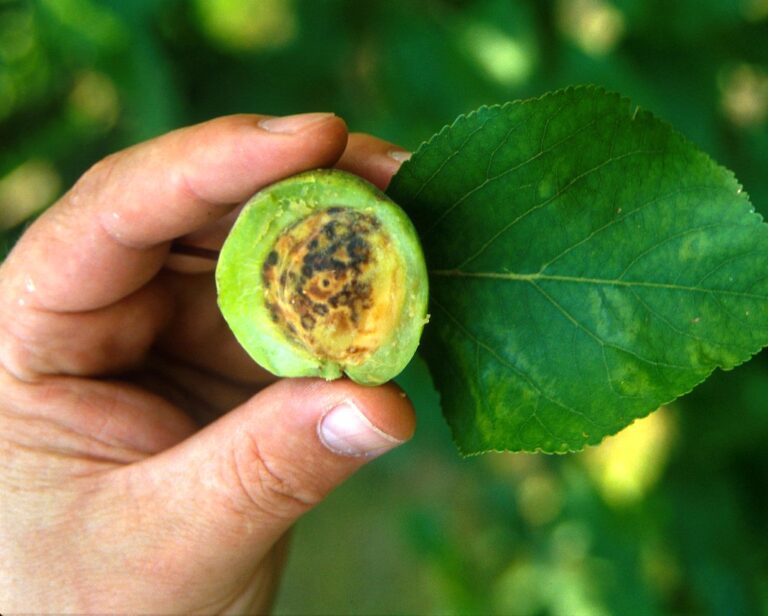Understanding Soil Preparation and Improvement: Testing, Amending and Adding Organic Matter for Soil Health
Understanding soil preparation and improvement is essential for excellent soil health. Testing soil pH levels determines nutrient availability for plants. Choose organic amendments like compost and manure to improve soil structure and nutrients. Adding compost boosts fertility and microbial activity. Improve drainage with organic matter like compost. Utilize kitchen scraps and plant debris for nutrient-rich soil. Organic matter plays a critical role in soil health. These practices guarantee robust plant growth and sustainable gardening.
Benefits of Testing Soil Ph Levels
Testing soil pH levels plays an important role in determining the nutrient availability to plants and their overall health. Maintaining the ideal pH ranges in the soil is critical for promoting best vegetable growth. Most vegetables thrive in a slightly acidic to neutral soil with a pH range of 6.0 to 7.0. When the soil pH deviates from this range, it can lead to nutrient deficiencies or toxicities, impacting plant health and yield.
Testing soil pH is the first step in understanding the soil’s current condition. Acidic soil, with a pH below 6.0, can hinder the availability of essential nutrients like phosphorus, potassium, and calcium to plants, resulting in stunted growth and poor yields. On the other hand, alkaline soil, with a pH above 7.0, can cause nutrient imbalances and limit the uptake of micronutrients such as iron, zinc, and manganese.
Choosing Organic Soil Amendments
When selecting organic soil amendments, it is essential to take into account the types of amendments available, such as compost, manure, and biochar. Organic amendments offer numerous benefits, including improved soil structure, increased nutrient availability, and boosted water retention capacity. Proper application methods are vital to maximize the effectiveness of these organic materials in enriching the soil for healthier plant growth.
Types of Amendments
To ensure good soil health and productivity, selecting appropriate organic soil amendments such as compost, manure, and biochar is essential. Compost, abundant in organic matter, beneficial microorganisms, and nutrients, improves soil structure and moisture retention. Manure, a nutrient-rich enhancer, stimulates plant growth, but proper handling is required to prevent nutrient loss and pathogens. Biochar, a stable carbon form derived from biomass, boosts soil fertility, water retention, and nutrient availability. Choosing the correct organic soil amendments based on nutrient content, soil type, and plant requirements is vital for sustainable gardening practices. By integrating these nutrient-rich enhancers, gardeners can enhance soil quality and promote healthy plant growth effectively.
Benefits of Organics
Organic soil amendments, such as compost, manure, and biochar, play a critical role in improving soil quality and promoting healthy plant growth. These amendments enhance soil structure, moisture retention, and nutrient availability, supporting essential biological activity necessary for plant health. By selecting organic matter, gardeners can boost soil aeration, water drainage, root growth, and overall soil health. Utilizing compost, manure, or biochar fosters sustainable gardening practices, ensuring cost-effective methods to improve soil properties and support plant growth. Garden and landscape plants benefit greatly from the use of organic soil amendments, creating an environment where plants can thrive due to the enhanced conditions provided by these natural materials.
Application Methods
Considering the diverse benefits organic soil amendments offer, selecting the appropriate application methods becomes essential for maximizing their effectiveness in enhancing soil quality and promoting robust plant growth. Organic matter such as compost, aged manure, and leaf mold play significant roles in improving soil health by enhancing soil structure, increasing nutrient availability, and fostering the growth of beneficial microorganisms. When applying compost, make sure thorough mixing into the soil to distribute nutrients evenly. Aged manure should be incorporated into the soil to provide nitrogen and organic matter, enhancing soil fertility. Leaf mold can be used as a top dressing or worked into the soil to boost nutrient content and improve soil structure, promoting healthy root growth and overall plant vigor.
Importance of Adding Compost
Incorporating compost into soil greatly improves its fertility and overall health by offering important organic matter and encouraging beneficial microbial activity. Compost, a rich source of organic matter, boosts soil structure, creating a more stable environment for plant roots to grow and access nutrients. This improved soil structure also aids in nutrient retention, reducing the risk of leaching and ensuring essential elements are available to plants over time. Additionally, compost increases the soil’s water-holding capacity, helping to sustain plants during dry periods and reducing the need for frequent irrigation.
Furthermore, the organic matter in compost serves as a food source for beneficial soil microbes. These microbes play a key role in nutrient cycling and decomposition processes, promoting soil health and enhancing plant growth. By fostering microbial activity, compost contributes to the overall biological diversity of the soil, creating a thriving ecosystem underground.
Compost also provides slow-release nutrients to plants, reducing the reliance on synthetic fertilizers. This not only benefits the immediate plants but also helps maintain soil health in the long term by avoiding chemical buildup. Using compost annually replenishes organic matter levels, ensuring a fertile environment for healthy plant growth. Overall, incorporating compost into soil is a sustainable practice that supports robust plant growth and fosters a balanced soil ecosystem.
Enhancing Soil Drainage Techniques
To enhance soil drainage effectively, one must prioritize the incorporation of appropriate materials such as compost, aged manure, or mulch. Organic matter plays a vital role in improving soil drainage by creating air pockets within the soil structure. These air pockets facilitate the movement of excess water, preventing waterlogging and ensuring a well-drained environment for healthy root growth. By adding organic matter to the soil, you can improve its structure, allowing for better aeration and water infiltration while also promoting the development of a strong root system.
Proper soil drainage is essential for preventing issues such as water runoff, erosion, and root rot in plants. Well-draining soil not only prevents water from accumulating around plant roots but also promotes oxygen flow to the roots, enhancing nutrient uptake and overall plant health. When excess water is unable to drain properly, it can lead to suffocation of plant roots and create an environment ripe for disease and nutrient deficiencies. By incorporating organic matter into your soil, you can create an ideal growing environment that supports healthy plant development and long-term sustainability.
Utilizing Common Organic Matter Sources
Utilizing common organic matter sources such as kitchen scraps, grass clippings, shredded leaves, and plant debris is important to enhancing soil health and promoting sustainable gardening practices. When these organic materials are recycled back into the soil, they contribute essential nutrients that are important for plant growth. Composting kitchen scraps and manure is a great way to enrich the soil with organic matter. Grass clippings, shredded leaves, and plant debris are easily incorporated into the soil, where they break down over time, releasing nutrients and improving soil structure.
Organic matter sources like compost play a critical role in enhancing soil health by improving water retention, nutrient availability, and overall soil structure. Compost acts as a reservoir for essential nutrients, releasing them gradually to plants as needed. Additionally, the organic matter in compost helps the soil retain moisture, reducing water runoff and promoting a healthier soil ecosystem.
Optimizing Soil Health With Amendments
How can we improve soil health effectively through the strategic use of amendments? Organic matter plays a vital role in boosting soil health by improving its structure, moisture retention, and nutrient availability. Incorporating various soil amendments such as compost, manure, biosolids, and biochar can greatly contribute to sustainable gardening practices and better soil preparation.
- Compost and Manure: These organic matter amendments not only improve soil structure and moisture retention but also provide essential nutrients for plant growth.
- Biosolids, Biochar, and Compost: Adding these amendments to the soil enhances aeration, water drainage, root growth, and biological activity, promoting overall soil health.
- BLOOM and Milorganite: Derived from biosolids, these specific soil amendments are beneficial for improving soil health and supporting robust plant growth.
- Biochar: As a stable and porous soil amendment, biochar aids in retaining nutrients in the soil, fostering nutrient availability for plants.
- Locally Available Materials: Utilizing resources like leaves, grass clippings, and cover crops as soil amendments not only enriches the soil with organic matter but also aligns with sustainable gardening practices, ensuring long-term soil health benefits.






